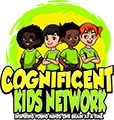Parenting is a journey filled with love, learning, and unique challenges. For families raising neurodivergent kids—children whose brains process, learn, and interact with the world differently—this journey can look a little different. Neurodivergence can include conditions like ADHD, autism spectrum disorder, dyslexia, dyspraxia, sensory processing differences, and more.
At Cognificent Kids Network, we believe in celebrating strengths while also providing the tools and support needed to navigate everyday life. Here are the top 10 facts every caregiver, educator, and community member should know about raising neurodivergent kids.
1. Neurodivergence Is a Difference, Not a Deficit
Neurodivergent kids aren’t “broken.” Their brains simply function differently. With the right support, they can thrive and bring incredible creativity, empathy, and innovation to the world.
2. Every Child’s Profile Is Unique
No two kids are alike—even if they share the same diagnosis. What works for one child with ADHD or autism might not work for another. Individualized care and flexibility are key.
3. Early Intervention Matters
The earlier a child receives support, the better their long-term outcomes. Early intervention can improve communication, social skills, and coping strategies.
4. Treatment Goals Go Beyond “Fixing”
Therapists and caregivers focus on building skills, not changing who a child is. Typical treatment goals include:
-
Improving emotional regulation
-
Developing communication and social skills
-
Enhancing executive functioning (organization, time management)
-
Encouraging independence and self-advocacy
-
Supporting healthy family and peer relationships
5. Consistency Is Powerful
Routines help many neurodivergent children feel safe and grounded. Predictability reduces anxiety and helps kids manage transitions more smoothly.
6. Sensory Needs Are Real
Some kids may be highly sensitive to light, sound, textures, or movement. Others may seek extra sensory input. Meeting these needs helps children focus, learn, and feel calm.
7. School Can Be Tricky
Traditional classroom structures aren’t always designed for neurodivergent learners. Collaboration between families, schools, and therapists can create environments where kids succeed academically and socially.
8. Parents Often Become Advocates
From IEP meetings to medical appointments, parents of neurodivergent kids frequently take on the role of advocate. Knowledge, persistence, and community support make a difference.
9. Self-Care for Parents Is Essential
Caring for neurodivergent kids can be rewarding but also exhausting. Parents and caregivers need rest, community, and permission to take care of themselves too.
10. Strengths Shine Brightly
Neurodivergent kids often have incredible strengths—like creativity, deep focus, problem-solving, and resilience. Focusing on these gifts helps build confidence and future success.
Final Thoughts
Raising a neurodivergent child is not about changing who they are—it’s about creating an environment where they can be their fullest selves. At Cognificent Kids Network, we’re here to support families with tools, workshops, and resources that make the journey a little easier and a lot more hopeful.
#cognificentkids #cognificentkidsnetwork #neurodivergentkids #raisingneurodivergentkids #parentingadhd #autism #therapists #schoolcounselor


